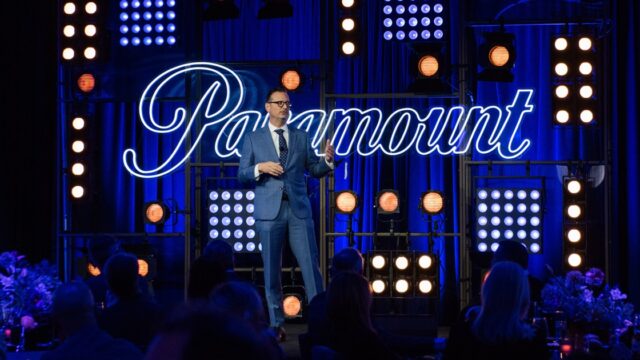Paramount is crossing the upfront finish line.
The company is now virtually done with negotiations, becoming the second major publisher after NBCUniversal to wrap the upfront.
Regarding results, Paramount is closing talks up low-to-mid single digits in dollar commitments. According to a source familiar with the matter, competitive advantages and capabilities drove strong demand across the company’s IP-driven, multiplatform offering.
Volume was up, and the company saw strong results across ad sales platform EyeQ, which has more than 90 million full-episode monthly viewers from Paramount+ and AVOD service Pluto TV; ad targeting platform Vantage; and sports verticals, which saw significant double-digit growth on a combined basis.
Sports properties drawing strong interest were the upcoming NFL season, Super Bowl 58, March Madness, PGA/Masters and UEFA.
Among the key drivers, there was continued momentum in digital, with upfront commitments doubling since EyeQ’s 2020 launch; the company had accelerated adoption of direct programmatic deals; and Vantage had brands increasing by 30% for 2024, with more than half of dollars going through new currency.
In terms of categories, personal care, beverage, auto and insurance all saw rebounds.
Similarly to NBCU, there’s no news on whether CPMs (cost per thousand viewers reached) went up or down, with many marketers expecting rollbacks this upfront season.
Paramount’s results, which came in the face of economic headwinds that led to the slowest upfront in years, could have lasting implications.
The company made a statement during the upfront this year, being the only major publisher to drop out of upfront week, exiting its decades-long residency at Carnegie Hall and opting for smaller client dinners instead. Though some in the advertising community may have questioned the decision, the dinners were a hit among buyers, earning overwhelmingly positive feedback.
Ad sales president John Halley, who is overseeing his first upfront after his predecessor Jo Ann Ross transitioned her role to chairman last fall, previously told Adweek that the dinners help the company reflect “a unified entity” and “frame and facilitate” upfront discussions. According to Halley, the smaller events were “successful in giving people a feel for what we’re trying to achieve through our content investment, all the way through to our huge audience footprint.”


